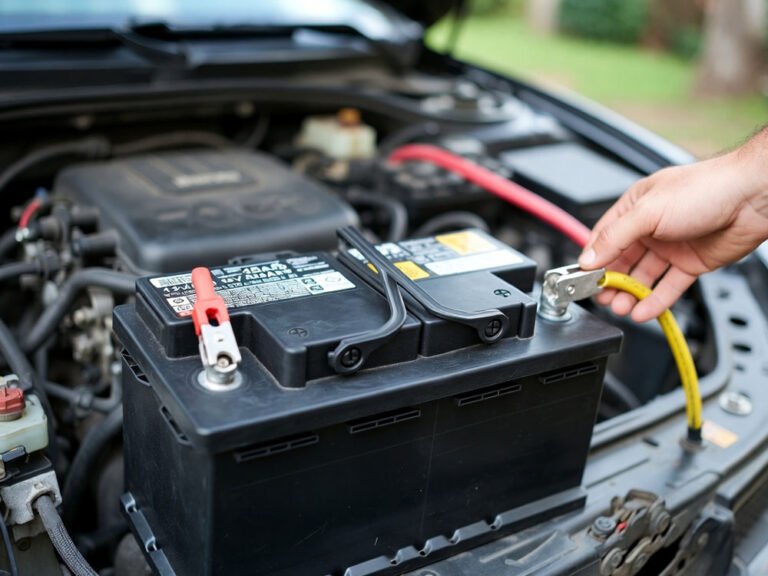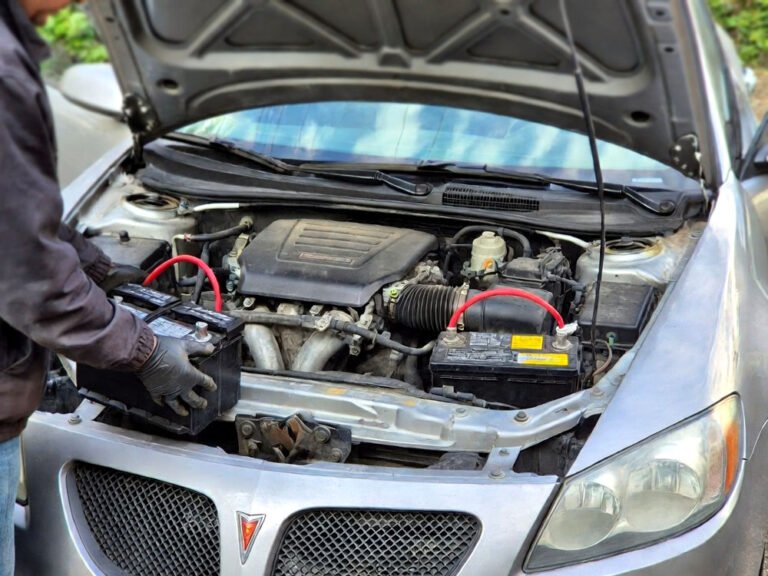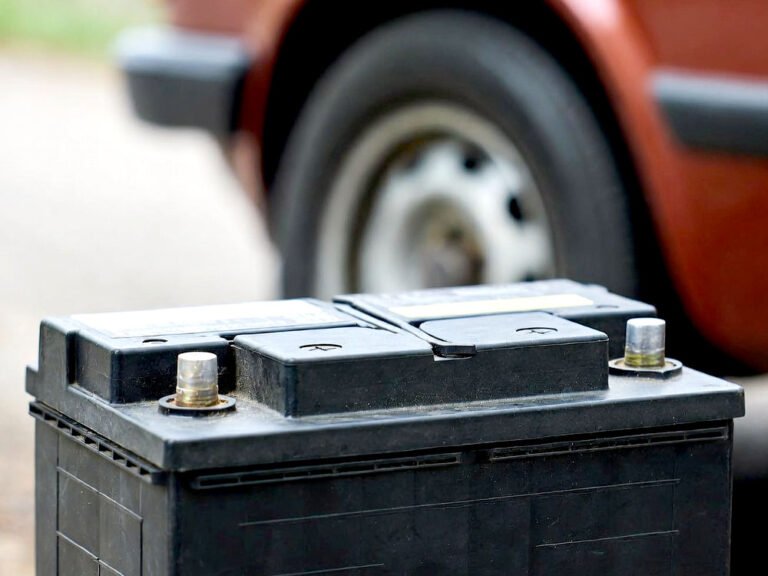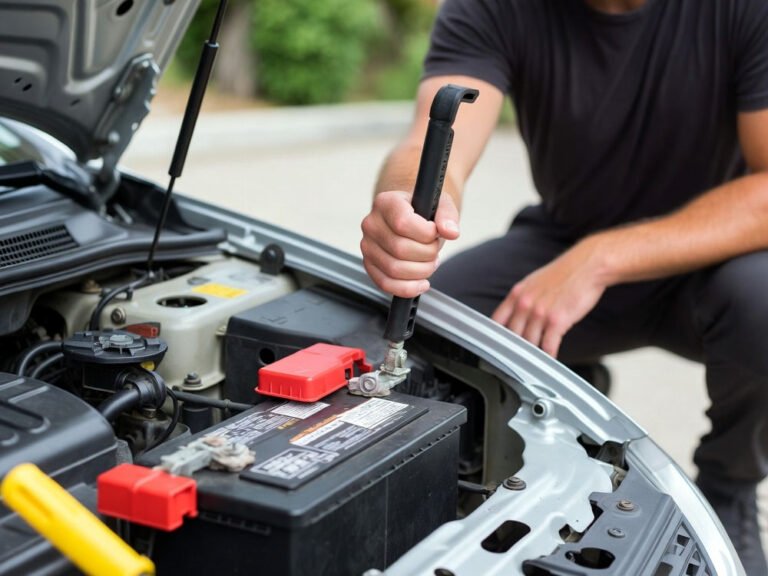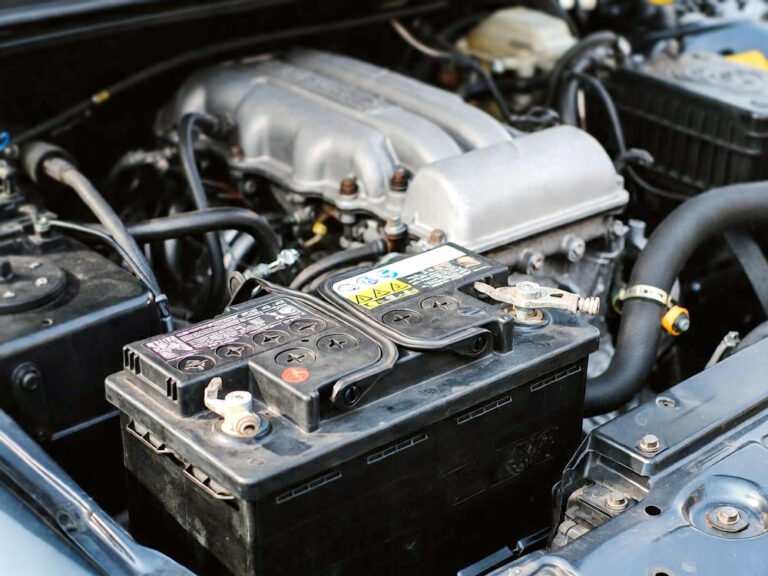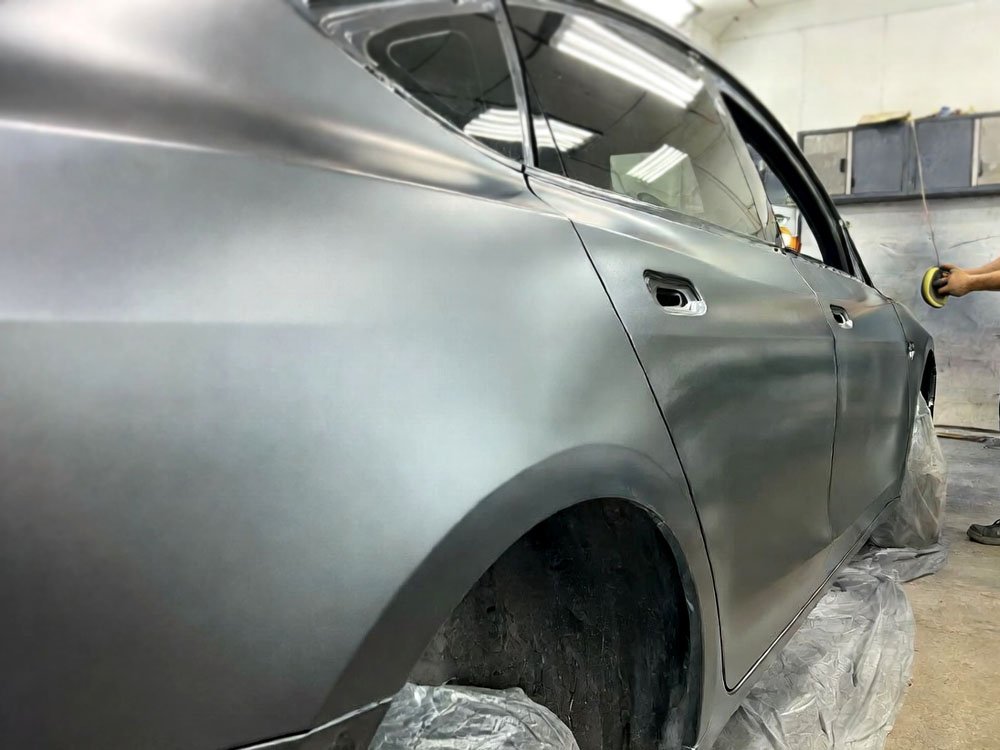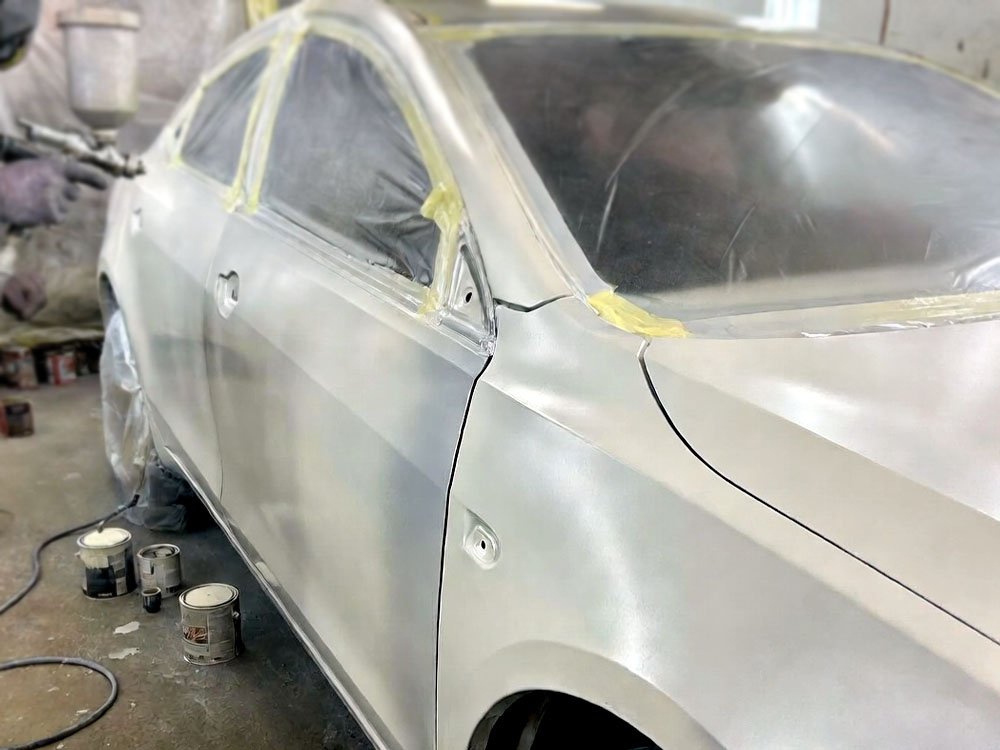Hey there! Ever felt your car suddenly jerking or running rough? That might be a misfire. It’s like a hiccup in how your engine works. In this blog post, we’re diving into three common reasons why this happens.
Understanding these could help you prevent it or fix it faster. Whether you drive a fancy sedan or a trusty old truck, knowing about misfires can save you time and money. So, let’s get started and learn what might be causing those engine hiccups!
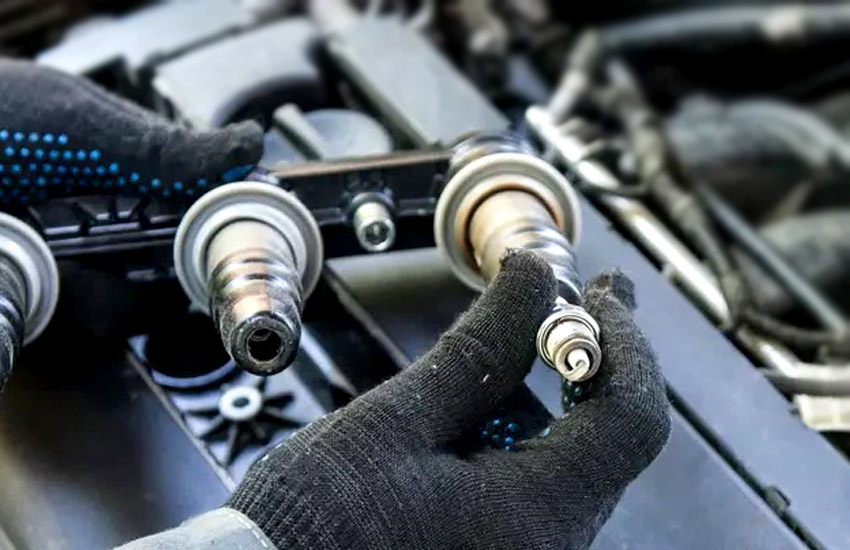
1. Faulty Spark Plugs
Spark plugs are small yet crucial components in your car’s engine ignition system. They play a fundamental role in igniting the air-fuel mixture that powers the engine, enabling it to generate the necessary combustion and drive force.
When spark plugs are in good condition, they fire at precise intervals, ensuring each cylinder in the engine fires at the right time.
However, when spark plugs become faulty due to wear and tear or contamination, they can significantly impair engine performance, leading to issues like misfires and decreased fuel efficiency.
What Spark Plugs Do
Spark plugs are threaded into the cylinder head of the engine, where they are positioned to ignite the compressed air-fuel mixture within each cylinder.
This ignition process creates a controlled explosion that drives the piston down, generating power to move the vehicle.
Each spark plug is connected to the ignition system, which delivers high-voltage electricity to create a spark across a small gap at the tip of the plug.
Signs of Faulty Spark Plugs
Detecting faulty spark plugs early is crucial for maintaining optimal engine performance. Here are some common signs that your spark plugs might be failing:
- Rough Engine Idle: If your engine idles roughly or vibrates excessively when you’re stopped or at low speeds, it could be a sign that one or more spark plugs are misfiring or not firing consistently.
- Difficulty Starting: Worn-out spark plugs can make it harder for the engine to start, especially in colder weather or after the car has been sitting for a while.
- Decreased Acceleration: When spark plugs fail to ignite the air-fuel mixture efficiently, it can lead to sluggish acceleration or a noticeable decrease in engine power.
- Poor Fuel Economy: Faulty spark plugs can cause incomplete combustion, resulting in wasted fuel and reduced fuel efficiency over time.
- Check Engine Light: Modern vehicles are equipped with onboard diagnostics that can detect engine misfires and other issues. If your check engine light comes on, it could indicate a problem with the spark plugs or the ignition system.
Causes of Spark Plug Problems
Several factors can contribute to spark plug wear and failure:
- Normal Wear and Tear: Like any component, spark plugs degrade over time due to repeated exposure to high temperatures and combustion pressures. Most manufacturers recommend replacing spark plugs every 30,000 to 100,000 miles, depending on the type of plug and driving conditions.
- Carbon Deposits: Internal combustion engines produce carbon deposits as a byproduct of burning fuel. Over time, these deposits can build upon the spark plug electrodes, insulators, and firing tips, causing the spark to weaken or become erratic.
- Incorrect Spark Plug Gap: Each engine requires spark plugs with a specific gap between the center electrode and the ground electrode. If this gap is too wide or too narrow, it can affect the spark plug’s ability to generate a consistent spark, leading to engine misfires.
- Contaminants: Dust, oil, and other contaminants can find their way into the engine and onto the spark plugs, potentially causing electrical leakage or interference with the spark plug’s operation.
Types of Spark Plugs
There are several types of spark plugs available, each designed to meet different engine requirements and operating conditions:
- Copper Spark Plugs: These are the most basic and affordable type of spark plugs. They offer good performance but typically have a shorter lifespan compared to other types.
- Platinum Spark Plugs: Platinum-tipped spark plugs provide enhanced durability and performance over copper plugs. They can withstand higher temperatures and have a longer service life.
- Iridium Spark Plugs: Iridium plugs are the most advanced and durable type available. They offer superior performance, longevity, and efficiency, making them ideal for modern high-performance engines.
Diagnosing and Replacing Spark Plugs
Diagnosing faulty spark plugs often involves inspecting them visually for signs of wear, such as carbon buildup or electrode erosion. Mechanics may also use specialized tools to measure the spark plug gap or test the ignition system’s performance.
Replacing spark plugs is a relatively straightforward maintenance task for most vehicles. However, it’s essential to follow the manufacturer’s recommendations regarding plug type, gap settings, and torque specifications. Using the wrong spark plugs or incorrect installation procedures can lead to poor engine performance or even damage.
Preventive Maintenance Tips
To maximize the lifespan and performance of your spark plugs, consider the following preventive maintenance tips:
- Regular Inspections: Check your spark plugs periodically for signs of wear or carbon buildup. Replace them according to your vehicle manufacturer’s recommended intervals.
- Use High-Quality Fuel: Quality fuel can help minimize carbon deposits and prolong the life of your spark plugs.
- Keep Air Filters Clean: A clean air filter ensures proper airflow to the engine, which can help maintain optimal combustion and reduce the likelihood of carbon deposits on spark plugs.
- Avoid Idling for Extended Periods: Idling for long periods can lead to incomplete combustion and increased carbon buildup on spark plugs.
Faulty spark plugs can have a significant impact on your vehicle’s performance, leading to issues like rough idling, poor acceleration, and reduced fuel efficiency.
By understanding their role in the ignition system and recognizing the signs of wear and failure, you can take proactive steps to maintain and replace spark plugs as needed.
2. Ignition System Issues
The ignition system of a car plays a crucial role in ensuring the engine operates smoothly and efficiently. When any component within this system malfunctions, it can disrupt the precise timing and strength of the spark required to ignite the air-fuel mixture in the engine cylinders.
This disruption often manifests as engine misfires, where one or more cylinders fail to fire correctly. Among the key components prone to causing ignition-related misfires are the ignition coil, distributor, and ignition wires.
Ignition Coil
The ignition coil is a vital component responsible for converting the low voltage from the battery into the high voltage needed to create a spark at the spark plugs. Modern engines typically use individual coil packs for each cylinder or a coil-on-plug setup, while older designs may have a single coil that distributes spark to all cylinders via the distributor.
Common Issues:
- Coil Failure: Over time, ignition coils can degrade due to heat and electrical wear. This degradation can lead to weakened spark output or complete failure to produce sparks, resulting in misfires.
- Cracks or Damage: Physical damage or cracks in the coil housing can allow moisture or dirt to penetrate, causing electrical shorts or interference that disrupts spark production.
- Internal Electrical Faults: Internal wiring or connections within the coil can degrade or break, leading to intermittent or inconsistent spark output, which can trigger misfires under certain conditions.
Distributor
In older ignition systems, the distributor plays a crucial role in distributing high voltage from the ignition coil to each spark plug in the correct firing order. Modern engines often use distributorless ignition systems (DIS) or direct ignition systems (DIS) where individual coils or coil packs directly fire each spark plug.
Common Issues:
- Rotor or Cap Wear: Distributor caps and rotors can wear out over time due to arcing, heat, and corrosion. This wear can cause electrical resistance or improper contact, leading to weak or inconsistent spark distribution and resulting misfires.
- Timing Issues: The distributor is responsible for ensuring the spark occurs at the precise moment in the engine’s cycle. Any malfunction or misalignment can cause timing errors that lead to misfires, especially noticeable at certain engine speeds or loads.
- Mechanical Wear: Components within the distributor, such as bearings or shafts, can wear out over high mileage, causing erratic movement or misalignment that affects spark timing and distribution.
Ignition Wires
Ignition wires, also known as spark plug wires or high-tension leads, carry the high voltage from the coil or distributor to each spark plug. They play a critical role in delivering the spark energy reliably and efficiently to ignite the air-fuel mixture in the engine cylinders.
Common Issues:
- Insulation Breakdown: Over time, the insulation around ignition wires can degrade due to heat, oil contamination, or physical wear. This breakdown can lead to electrical leaks or shorts that reduce the voltage reaching the spark plugs, causing misfires.
- Internal Resistance: Internal wires within the ignition cables can develop resistance or breaks, especially at the connection points or near bends. This resistance can reduce the voltage available for sparking, resulting in misfires under load or at high engine speeds.
- Improper Installation: Incorrect routing or installation of ignition wires can lead to interference with other engine components, causing electrical noise or cross-firing between wires, which disrupts spark delivery and triggers misfires.
Diagnosing Ignition System Issues
When diagnosing ignition-related misfires, mechanics typically use diagnostic tools such as oscilloscopes, ignition testers, or scan tools to analyze ignition timing, spark strength, and consistency across all cylinders. Visual inspection of components like ignition coils, distributor caps, rotors, and ignition wires for signs of wear, damage, or corrosion is also crucial.
Steps for Diagnosis:
- Scan Tool Analysis: Use a scan tool to check for diagnostic trouble codes (DTCs) related to misfires, which can pinpoint specific cylinders or components experiencing issues.
- Visual Inspection: Inspect ignition coils, distributor caps, rotors, and ignition wires for physical damage, corrosion, or signs of wear that could affect spark delivery.
- Spark Test: Use an ignition tester or oscilloscope to verify the strength and consistency of sparks produced by each ignition coil or distributor.
- Resistance Check: Measure resistance across ignition wires to ensure they are within manufacturer specifications and free from internal breaks or shorts.
- Timing Adjustment: Verify ignition timing using manufacturer specifications and adjust if necessary to ensure correct spark timing relative to engine operation.
The ignition system is a critical component of any gasoline-powered engine, responsible for generating and delivering the high-voltage sparks needed to ignite the air-fuel mixture in the cylinders.
Issues with components like ignition coils, distributors, or ignition wires can disrupt this process, leading to engine misfires characterized by rough idling, hesitation, or loss of power.
3. Fuel Delivery Problems
Fuel delivery problems can significantly impair the performance and reliability of your vehicle’s engine. Issues such as clogged fuel injectors, a dirty fuel filter, or a weak fuel pump can disrupt the precise balance of air and fuel necessary for combustion.
When these components fail to deliver fuel effectively to the engine cylinders, it can lead to noticeable symptoms like engine misfires, rough idling, reduced fuel efficiency, and even potential damage to engine components over time.
Clogged Fuel Injectors
Fuel injectors play a crucial role in modern fuel delivery systems by spraying a fine mist of fuel directly into the engine cylinders. Over time, fuel injectors can become clogged or restricted due to the buildup of dirt, varnish, or deposits from low-quality fuel.
When injectors are clogged, they may not spray fuel evenly or at the correct pressure, causing some cylinders to receive too much or too little fuel. This imbalance can result in engine misfires, where the affected cylinders fail to ignite the air-fuel mixture properly or consistently.
Clogged fuel injectors often manifest as symptoms such as hesitation during acceleration, rough idling, and a noticeable decrease in engine performance. Professional cleaning or replacement of fuel injectors may be necessary to restore proper fuel delivery and engine operation.
Dirty Fuel Filter
The fuel filter is designed to trap contaminants such as dirt, rust, and debris from entering the engine’s fuel system. Over time, the fuel filter can become clogged with accumulated particles, restricting the flow of fuel to the engine.
A dirty fuel filter reduces the volume of fuel reaching the cylinders, leading to symptoms similar to those caused by clogged fuel injectors.
A common sign of a dirty fuel filter is difficulty starting the engine, particularly after the vehicle has been sitting for a while. Additionally, engine misfires under load or during acceleration can occur as the fuel supply becomes insufficient to meet the engine’s demands.
Regular replacement of the fuel filter, as recommended by the vehicle manufacturer, is essential to maintain optimal fuel flow and prevent performance issues.
Weak Fuel Pump
The fuel pump is responsible for delivering fuel from the gas tank to the engine at a consistent pressure and volume.
A weak or failing fuel pump may struggle to maintain adequate fuel pressure, especially under heavy loads or high-speed driving conditions.
This can result in intermittent or persistent engine misfires as certain cylinders receive insufficient fuel to sustain combustion.
Symptoms of a weak fuel pump include engine stalling at low speeds or under acceleration, hesitation during acceleration, and difficulty starting the engine.
A diagnostic test can determine if the fuel pump is operating within the manufacturer’s specified parameters.
Replacement of the fuel pump may be necessary if it fails to deliver fuel effectively, restoring proper engine performance and reliability.
Impact on Engine Performance
Fuel delivery problems not only compromise engine performance but also affect overall fuel efficiency and emissions.
When cylinders experience misfires due to inadequate fuel delivery, the engine may compensate by running lean (too much air, too little fuel) or rich (too much fuel, too little air), leading to increased fuel consumption and emissions of pollutants such as carbon monoxide and hydrocarbons.
In severe cases, prolonged misfires can cause damage to the engine components, including the catalytic converter, which is responsible for reducing harmful emissions. A malfunctioning catalytic converter can lead to higher emissions levels and potentially costly repairs.
Diagnosis and Maintenance
Diagnosing fuel delivery problems typically involves a combination of visual inspection, fuel pressure testing, and diagnostic scanning to identify any fault codes related to fuel system performance.
Professional mechanics may use specialized tools and equipment to pinpoint the exact cause of fuel delivery issues and recommend appropriate repairs or replacements.
Routine maintenance is key to preventing fuel delivery problems and ensuring optimal engine performance. Regularly scheduled inspections, fuel system cleanings, and timely replacement of fuel filters and other components can help prevent the buildup of contaminants and extend the lifespan of critical fuel system components.
Fuel delivery problems such as clogged fuel injectors, a dirty fuel filter, or a weak fuel pump can disrupt the precise balance of air and fuel required for efficient combustion in your vehicle’s engine.
I hope this helps! Three common reasons for a misfire in a car are bad spark plugs, problems with the ignition system like a faulty coil or wires, and issues with how fuel gets to the engine, such as clogged injectors or a dirty fuel filter.
When these parts don’t work right, the engine doesn’t run smoothly. It might shake or feel weak, and you might notice the Check Engine light.
Regular maintenance can prevent these problems, like changing spark plugs and filters. If your car misfires, it’s smart to get it checked by a mechanic.


